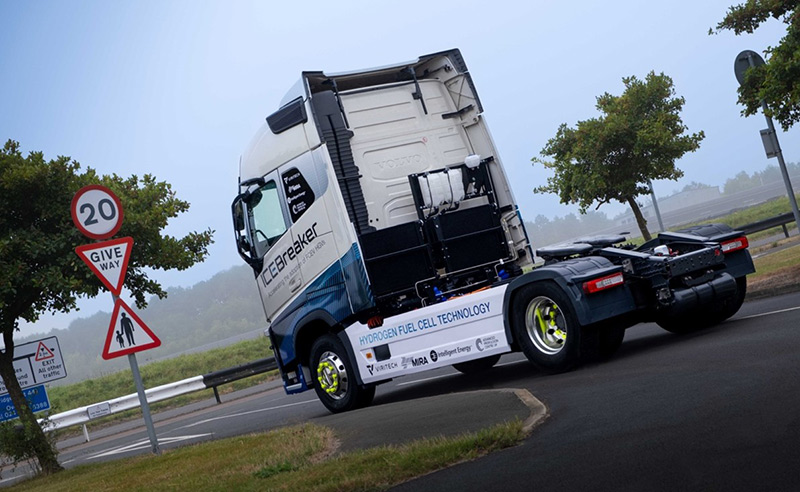Pioneering ResiCAV Project Wins Government Cybersecurity Competition
A pioneering project to ensure that connected and autonomous vehicles (CAVs) and their infrastructure are protected against rising cybersecurity threats, has been named as a winner of a government competition.

ResiCAV – a ground-breaking programme that looks at how the mobility industry will detect, understand and respond to emerging cybersecurity threats in real-time – is one of seven projects announced as part of the Cybersecurity Feasibility Studies competition today.
The ResiCAV consortium will receive a grant to help CAVs develop real-time responsiveness to cybersecurity threats. The consortium will set out the requirements and specifications for Vehicle Security Operations Centres (VSOCs) that support the monitoring demands of the forthcoming ISO/SAE 21434, plus extend the application of artificial intelligence and data visualisation techniques. Finally, ResiCAV will deliver the requirements for a UK road transport Cybersecurity Centre of Excellence to support the UK’s position of meeting the global challenge of automotive cybersecurity head on.
Combining cross-sector expertise, it will be delivered by a consortium led by leading engineering consultancy HORIBA MIRA, international security experts Thales and global telecommunications solutions provider BT, with further support from WMG University of Warwick, the Centre for Modelling & Simulation (CFMS), Oxfordshire County Council, AESIN Techworks, plus the University of South Wales, the University of Bristol, Coventry University and the National Digital Exploitation Centre (NDEC).
The Cybersecurity Feasibility Studies competition launched in August 2019 and called for the automotive industry to submit their ideas on how to create a robust cybersecurity solution to support the mainstream rollout of CAVs across the UK and ensure a solution that both addresses and informs the expectations of significant emerging cybersecurity industry standards. It has been spearheaded by government-led entities including Zenzic, Centre for Connected and Autonomous Vehicles (CCAV), Department for Business, Energy and Industrial Strategy (BEIS) and Department for Transport (DfT). Some £2million will now be invested in the seven separate projects.
Welcoming the competition win, Anthony Martin, Head of Vehicle Resilience Technologies at HORIBA MIRA, comments:
“As the first project of its kind, ResiCAV brings together unique expertise in automotive engineering, cybersecurity systems and artificial intelligence. We’re delighted that it has been recognised as one of the winners in the Cybersecurity Feasibility Studies competition.
“With CAV technologies continuing to develop at such a rapid pace and only set to evolve in complexity, the project will play an integral part in enabling the mobility industry to respond to emerging cybersecurity threats in real-time, by setting out clear parameters for measuring operational resilience, developing roadside infrastructure and supporting services.
“We look forward to working with our key project partners in creating the world-class cybersecurity framework necessary to support the mass deployment of CAVs across the UK, and globally, in the coming years.”
Mark Cracknell, Head of Technology at Zenzic, said:
“Zenzic is proud to be co-ordinating the CCAV sponsored Cyber feasibility programme. This programme is bringing together the UK’s leading experts in Cyber-Physical systems and will shape the UK’s position as leaders in cyber security for connected and automated mobility.”







